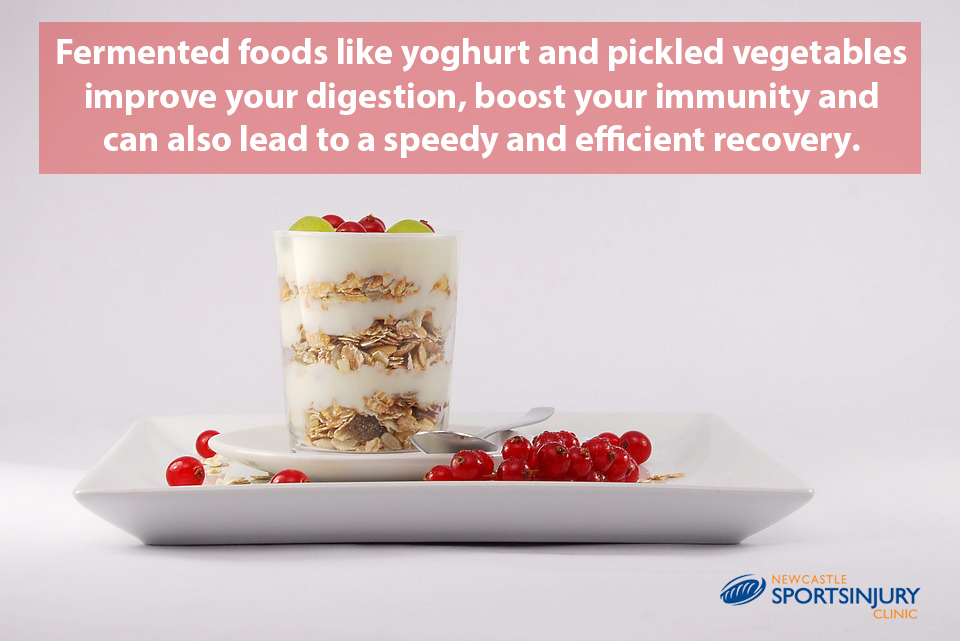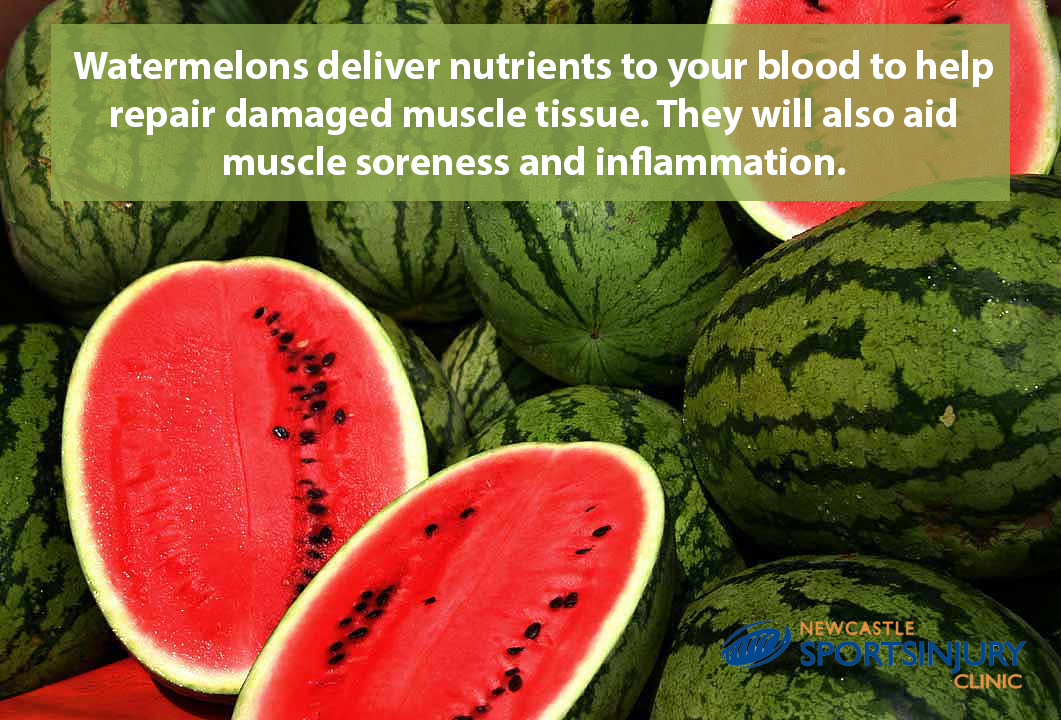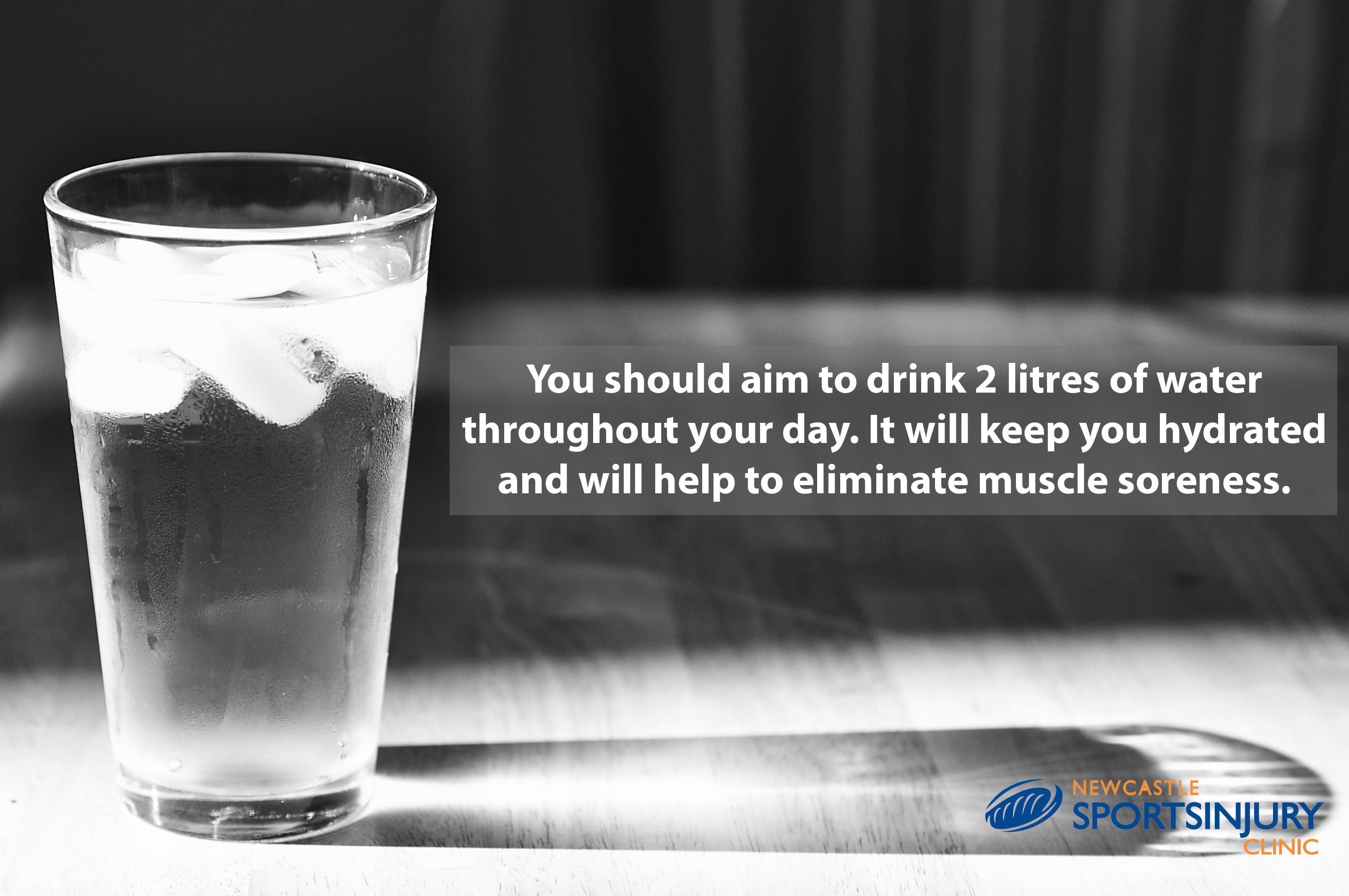8 foods to help improve recovery and reduce soreness from intense exercise
Whether you’re training for a half marathon, a triathlon, or just trying to get a bikini body for the summer, you need to concentrate on nutrition just as much as you need to stick to a training routine.
After an intense session, lots of athletes love the reward of a bit of soreness, which proves that you’ve worked hard. However, when you have a deadline coming up (like the Great North Run) you also want to be able to recover in between workouts so you can continue building up stamina and improving.
One greatly underestimated method for accelerating recovery time and reducing aches and pains is to provide your body with proper nutrition. What you eat determines your energy level, performance capability and general wellbeing!
While training, your body is using up its essential nutrients quickly, so it’s even more essential that you fuel up properly before and after exercise.
When looking forward to an event, remember these key points: eat simple food the week before, and whatever you do, do not eat a curry the night before! Try to reduce caffeine intake on the day of the race, as it is a diuretic, and you don’t want to be stopping for the porta-loo regularly.
However, do remember to stay well hydrated, carrying a water bottle around with you as often as possible, especially the day before an event. If you’re concerned that you’re not drinking enough while training, try leaving a water bottle behind your front hedge and stopping for a drink while doing two five-mile loops around your house!
As weird as it may sound, you should also practice eating and training in line with the time of the race. E.g., if your event is at 9AM, practice testing out different pre-race meals and then exercising at that time to see how your body responds. This will help you determine the best pre-race meal and to be aware of how your body will react to it.
Here are some of the top foods and food groups to eat in order to optimise recovery, reduce soreness and fuel performance while training for an athletic event:
Cruciferous vegetables

Eating cruciferous veg with meals will help provide the carbohydrates and nutrition you need to train hard. This food group will also boost your metabolism, reduce inflammation and lower the level of cortisol in the body post-workout.
Yoghurt, fermented dairy and other foods high in probiotics
For a painless recovery, supplement your meals with fermented foods when possible, as it will help your body to better absorb nutrients and eradicate waste by-products from training.
Fish
Have you ever been recommended a fish oil supplement? Well, eat the real thing when you’re in an intense training month for the added protein while also receiving the benefits of omega-3 fats.
Leaves/greens
A diet full of raw spinach, rainbow chard and kale will help to reduce your body’s insulin response and provide nutrients you need to speed up healing.
Dark fruits
Cherries, blueberries, acai berries, raspberries, blackberries, plums… all these tasty fruits will provide healthy sugar for added energy while also potentially reducing delayed onset muscle soreness (DOMS).
Nuts
You need to fill your body with healthy fats in order to provide the energy and nutrients needed for extreme exercise. Snack on a variety of nuts, like almonds, hazelnuts, Brazil nuts, walnuts and pistachios.
High-glycaemic fruits or starchy vegetables
Rehydrate and replenish muscle glycogen levels with this food group. Watermelon, pineapple, or kiwi are great hydration sources, and squash or sweet potatoes can be added to meals to provide further antioxidants and fibre.
If you’re looking for more personalised advice on nutrition, a nutrition assessment from a member of our physiotherapy team can ensure you are adequately prepared for your upcoming race or event.








